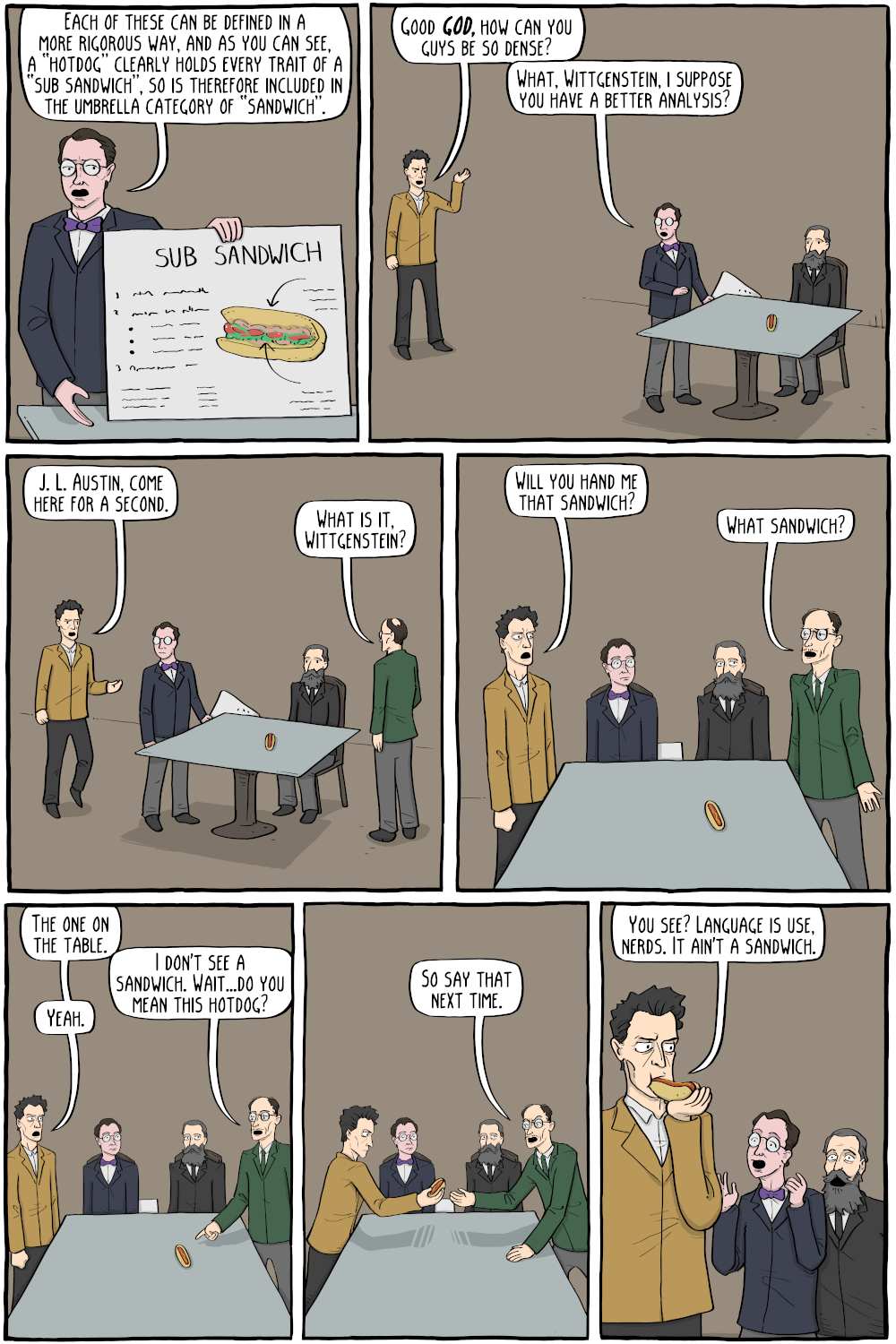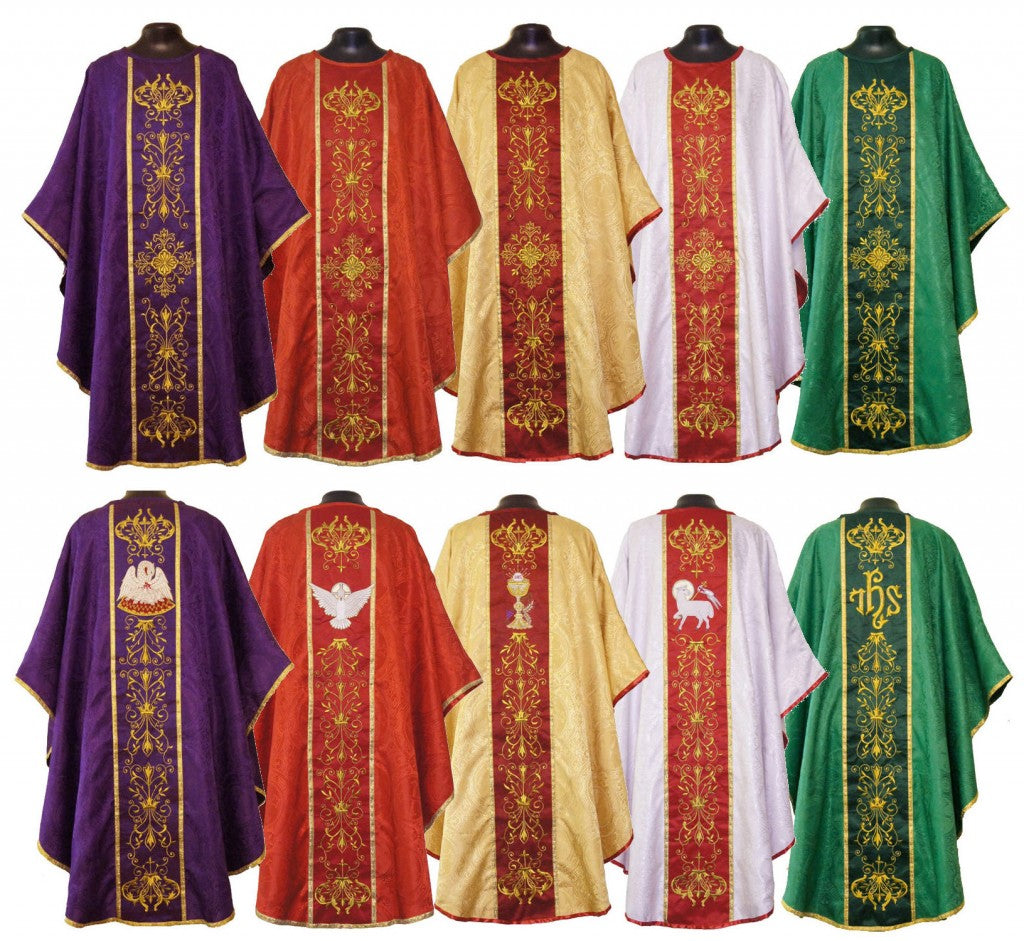
in talking about religion in an RPG, you have to ask what it is for.
First, there's a common and very bad reason to include a pantheon of Olympians, so that they can be Deus Machina and drive the plot.

hack!
Zeus is the original DM penis NPC and you may think literature gives you an excuse to have him around but you shouldn't. The Monkey King jumps to the edge of the universe and shits on one of the Buddha's fingers; that's a bit better, but still not something you want in an RPG.
So, you want to reverse engineer your religion from cool elements.
[*] Duds.

The different colors represent different spell categories
Priestly and religious hierarchies provide an excuse for your imagination - which has an unlimited budget for sets and costuming - to go completely bonkers.
Therefore, you want temples full of fancy dressed dudes and dudettes doing ceremonies.
[*] Patrons and saints
By Crom's Beard!
Crom (Conan's deity) is a good one, because he may or may not even exist. Set exists but is a giant snake-monster, whom you are expected to kill; and Mitra likely exists but his priestess is the only one who hears him.
So you want deities or forces that the characters can swear oaths by.
You also want patrons, fulfilling basically the role of mentor spirits in Shadowrun, and you want orders devoted after specific heroes and such not. Crucially, these entities should enter the narrative preferably-never but at-best-sparingly and as a vehicle for some PC's ability. So if you follow Saint George the Dragonslayer you can by-all-means conjure his courage, but this is an ability your character has and not something that the St. George NPC does himself.
As with clans, it's an open question whether your choice of mentor spirit should do anything mechanically. On the one hand, people want it to make a difference (as they do with clan choices, and other choices from a menu of splats); on the other hand, it will inevitably be unbalanced, subject to charop, and thus effectively close off character conceptions.
If I want my Hobbit Wizard to have the Dragonslayer as his patron (because rule Britannia), this shouldn't make him strikingly inferior to a Gnome Wizard of St. Benedict. The same tension applies to the clan bonuses over in the Oriental Fantasy thread.
[*] Sinister Priests
Priests make great villains, and not just because of the awesome duds.

Witch Doctors, Demon Quellers, Exorcists, etc. are a job that would obviously exist in any demon-haunted setting, and also provide support for a bevy of useful tropes as both PC roles, and as antagonists.
Whether you want to admit or not, anyone whose job is to protect the population from occult forces is a priest. This is true whether you fight off or appease the local gremlins or whether you read the auguries to avoid offending some remote crypto-Olympian God. The crypto-Confucian scholar who keeps the calendar on behalf of the ancestor spirits may not have Demon Queller as a class, so you can have additional priests but if exorcisms need doing, exorcist becomes a profession.
Other than that, doing religious stuff can (and should) be a side gig available to secular warchiefs as well as the more conventional (and quite ancient) hierarchy of beureaucrats. In order to avoid having a pantheon of meddling Olympians, these priests can in any case make offerings to local monsters (which problems can also be managed through stabbings), expound more-or-less atheistic philosophies, and/or venerate more local deities, heroes and patrons. If you have them worshiping crypto-Olympians or "heaven" or "Maat", the existence of the targets of their veneration should not be definitively established - anything that enters the plot as an independent agent should be within the scope of the PCs.
I'm sure I'll come up with some more deliverables, but that's a good start.